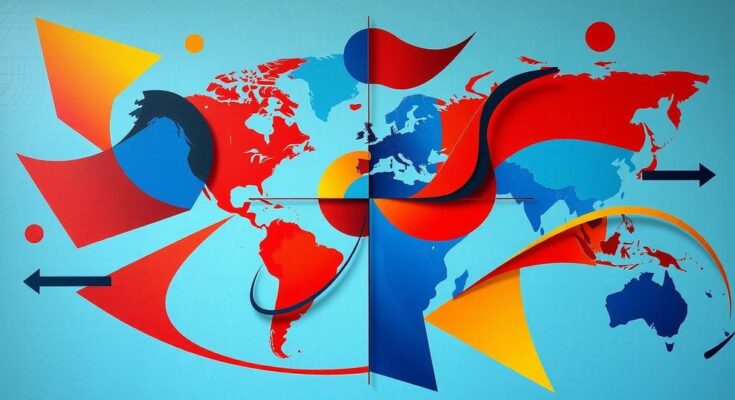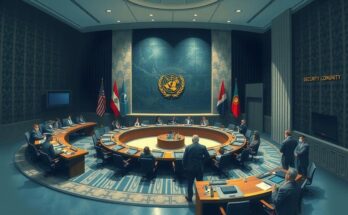Jamaica is confronting a diplomatic challenge as it balances its enduring relationship with the United States against the burgeoning influence of China through its Belt and Road Initiative. This dilemma intensifies due to accusations against Cuba, Jamaica’s traditional ally. As Jamaica reassesses its foreign partnerships, Prime Minister Holness must weigh the implications of aligning with either economic powerhouse while considering new opportunities particularly from Africa.
Jamaica finds itself in a diplomatic quandary, caught between long-standing relationships and the allure of new economic opportunities. While the United States serves as Jamaica’s primary trading partner, China’s presence is growing through its Belt and Road Initiative, complicating these relations. China’s infrastructure investments have positioned it as a significant benefactor of the Caribbean, adding to Jamaica’s challenges in balancing its foreign policy.
The longstanding partnership with Cuba, particularly apparent during the COVID-19 pandemic, is increasingly strained due to U.S. allegations of human trafficking against the Cuban government. Jamaica’s foreign policy seeks to uphold multilateral partnerships but navigating between these competitive powers necessitates adept diplomacy to prevent negative consequences.
Historical precedents, such as Prime Minister Michael Manley’s stance on Cuba during the Angola conflict, illustrate the repercussions of diplomatic decisions. Currently, Prime Minister Andrew Holness faces criticism for not following the example set by Barbadian Prime Minister Mia Mottley regarding Cuba. This criticism has led to suggestions that Jamaica should enhance its ties with Africa, thus mitigating the pressures from both the U.S. and China.
Despite opportunities to strengthen regional ties via the African Export-Import Bank, Jamaica remains one of only two Caricom nations abstaining from signing a vital partnership agreement designed to bolster trade and investment between the Caribbean and Africa. The Afreximbank has allocated up to $3 billion to nations that join this initiative, underscoring the need for Jamaica to reconsider its position.
As Jamaica reassesses its foreign policy, it must weigh its historical affiliations against current geopolitical dynamics. Traditionally, the People’s National Party (PNP) has fostered a relationship with China, yet there seems to be a reluctance in the present leadership to continue this connection. Jamaica’s strategic decisions will influence its economic trajectory as it balances its historical ties with the U.S. against emerging opportunities with China.
The pressing question for Prime Minister Holness involves prioritizing Jamaica’s economic interests with China or maintaining its strategic relationship with the U.S., especially in view of the upcoming elections. His silence on U.S. accusations against Cuba exacerbates the dilemma, and Jamaica must find ways to uphold its alliances and sovereignty while pursuing economic growth.
In conclusion, Jamaica’s diplomatic future hangs in a delicate balance, influenced by its historical ties and emerging global partnerships. Prime Minister Holness faces critical decisions that will shape the nation’s economic and political landscape. As the country navigates pressures from the U.S. and China, it is imperative for Jamaica to explore new alliances, particularly with Africa, to ensure its sovereignty and foster economic development in a dynamic geopolitical context.
Original Source: www.jamaicaobserver.com




